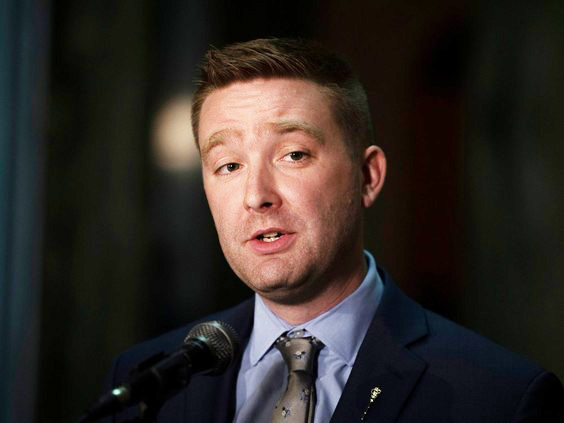
Angela Amato
Regina Leader-Post
Following an overwhelming rejection of the province’s latest contract offer, Education Minister Jeremy Cockrill hopes informal talks will get teachers back to the table sooner rather than later.
During question period on Monday, Cockrill said he’s been speaking with Saskatchewan Teachers’ Federation (STF) president Samantha Becotte and both parties want to get to an agreement that works for students and families.
“We want to make sure that any time we get back to the bargaining table, it’s going to be as productive of a conversation as possible,” Cockrill told media on Monday.
Last week, thousands of teachers across the province voted against what the STF says was presented as the government-trustee bargaining committee’s (GTBC) “final offer.”
“The message to government and the Saskatchewan School Boards Association is crystal clear: their so-called ‘final offer’ is unacceptable and does a disservice to students and teachers,” Becotte said in a statement announcing the vote results last week.
The province’s offer included an eight-per-cent salary increase over three years, retroactive to 2023. It also contained a line stating that an accountability framework set out in a memorandum of understanding (MOU) meant to ensure ongoing funding to address class size and complexity would be “followed and honoured.”
Over the past several months, the STF has pushed for legislation to make the accountability framework and MOU legally binding.
“We’re going to have to see the government be willing to bring something new to the table to bargain in good faith and try to address class size and composition issues,” said Opposition Leader Carla Beck following question period Monday.
“If (Minister Cockrill) is refusing to even discuss bringing class size and composition into the contract, then I’m afraid we’re going to see an impasse again,” she said.
Cockrill expressed the government’s “desire” to understand what the STF heard from members in town hall meetings held ahead of the vote as a way to identify “what some paths forward may be.”
“I know the GTBC is working hard to figure out what we need to do on our side. I hope the teachers’ bargaining committee (TBC) is doing that as well,” he said.
Cockrill maintained that local school divisions should retain some “decision-making power in terms of how their school communities look and are structured and staff,” and argued that the province has moved in “several different areas” to try to get a deal done.
As informal talks between the TBC and GTBC chairs continued into Tuesday afternoon, Becotte declined to comment until something substantive from the conversations can be shared.
Prior to 2017, if a final offer was voted down, an arbitrator would typically be used to make a binding decision. Amendments to the province’s education act now require both parties to agree to binding arbitration.
The STF has said it would be willing, but the province has repeatedly said arbitration is not something it would consider, a sentiment Cockrill reiterated at the legislature Monday.
“For months now I’ve been saying the best agreement is going to happen at the bargaining table,” he said.
With high school graduation just around the corner, there have been concerns that potential job action could impact year-end celebrations.
“No one in this province wants to see kids not be able to take part in graduation,” said Beck.
Last week, Becotte said further sanctions would depend on the province’s response.
If more job action is enacted, Cockrill and Premier Scott Moe have hinted at extending the school year to make up for lost time.
— With files from Alec Salloum and Larissa Kurz.
AnAmato@Postmedia.com

